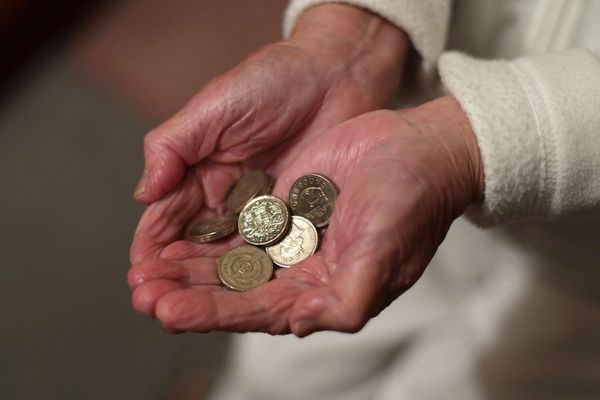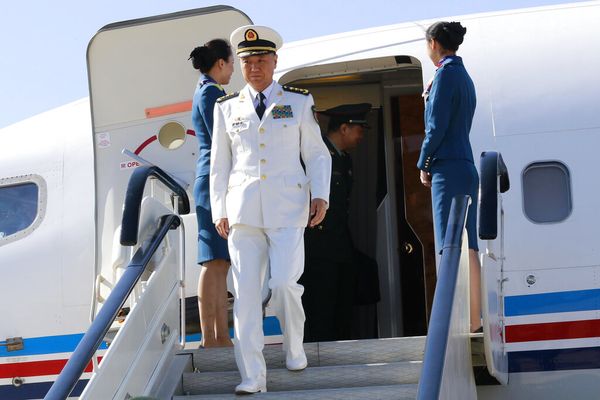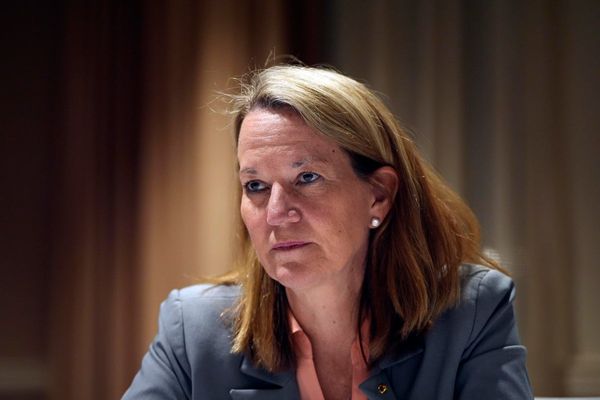
Kudos to The Sydney Morning Herald for its summer campaign “Pokies: state of addiction” . It’s dragged a necessary debate out into the open and exposed the dirty tactics long used by the pokies lobby to ensure it can continue sliding its long hand deep into people’s pockets.
But before we get too dewy-eyed, let’s talk about the media’s own growing gambling addiction: online sports betting — rapidly replacing the rattling slots of the pokies with the silent lure of a digital app.
The SMH campaigners don’t need to look far to find 948 examples of the rising danger. That’s the average number of gambling ads on free-to-air television every day, which reveals just how implicated the media is in Australia’s world record per capita gambling losses.
It’s an addictive trap. Thanks to a 2008 High Court decision that found it unconstitutional to prohibit interstate operations, it’s now a sure bet to find sports betting spread across all the traditional media — spanning free-to-air broadcasters, printed newspapers and commercial radio.
Just as pokies made zombies out of the pubs and clubs, eating out their brains to turn hospitality into gambling’s most enthusiastic advocates, the rising online sports betting industry is pulling off the same trick with commercial mass media.
The shocking 948 number points to evidence of growing collaboration. Based on Nielsen data, the Victorian Responsible Gaming Foundation (VRGF) found that daily ads were part of a gambling industry advertising spend of $287.2 million in Australia in 2021. Expect 2022’s numbers — and 2023’s — to be considerably up again.
Sure, there are other advertisers — the free-to-air stations reckon they banked $4.1 billion across 2021 — but gambling ads are among the few that are surging. Pretty soon, it will be too late for the broadcasters to go cold turkey.
It’s more than the dollars: sports rights are critical elements of broadcasters’ strategy for capturing a young generation of watchers. It turns out it’s the exact same audience the bookmakers are after.
In just about all sports broadcasts now — free-to-air, Foxtel cable, streaming — the sports betting industry has inveigled itself deep into the medium: such as via advertisements, of course, but also advertorial segments featuring “experts” discussing odds and occasionally engaging in friendly banter.
There are restrictions on gambling while play is taking place (other than incidental in-stadium advertising) and on odds during breaks, such as during half-time or, if it’s earlier than 8.30pm, within five minutes of play starting and ending. Despite the restraints, the ads are hitting their target: the VRGF report found “young men aged 18–24 years make up almost a fifth of sports bettors in Victoria”.
Sports betting is also critical to keep print alive, delivering something the medium has always struggled to find: a reliable advertising stream for the sports section, plus full-colour wrap-arounds to promote the most bettable of sporting events.
The real value for mastheads — and for sports betting in print — lies in the form guide: 20 pages out of 160 in this past Saturday’s Daily Telegraph, for example. Oh, plus the one-page advertorial for Betr, part-owned by News Corp.
Governments and regulators are struggling to respond. Last year, the Australian Communications and Media Authority (ACMA) found breaches of commercial television’s code of practice in gambling advertising both for the Nine network (over its broadcast of the 2021 NRL grand final) and Seven (over the Tokyo Olympics). In both cases, ACMA even issued (gasp!) enforceable undertakings requiring the networks to train staff and improve processes. That’ll fix things.
Meanwhile, from April, the federal government is toughening the anodyne “gamble responsibly” tag on betting ads, replacing the two-word caution with seven more explicit rotating messages (like “Chances are you’re about to lose” or “You win some. You lose more”) and a helpline contact.
It’s “nudge theory”, where behavioural economics meets light-touch policymaking in the hope that positive cues and suggestions can break through resistance to otherwise complex personal decisions and actions. Here it’s the best of both worlds: the government looks like it’s doing something without actually taking the risk of getting in between big media and a pile of advertising money.
The millions of dollars’ in ads in traditional media are just part of the bookmakers’ spend. Like most advertisers, they’re putting most of their money where they and their potential punters are: online.
Traditional media — like community clubs and pokies — has something more to offer sports betting: institutional credibility. But should the media be so eager to sell? Or should governments save media from itself and ban sports betting ads altogether?







